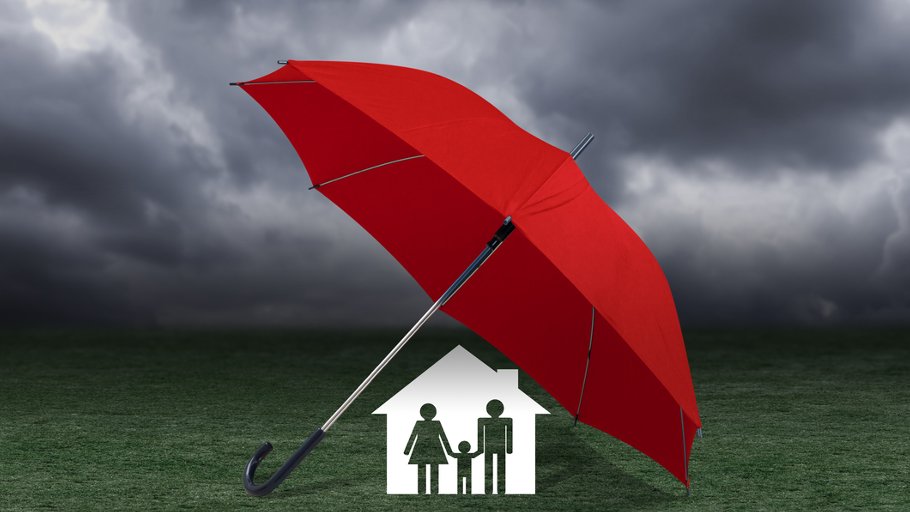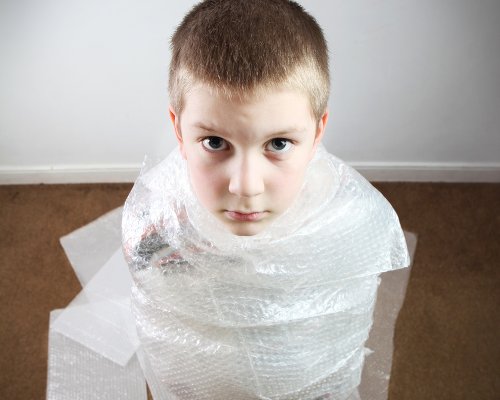 The Irrationality of Antisemitism
The Irrationality of Antisemitism


6 min read
How to raise independent kids in today ‘s world.
One of my favorite childhood memories is riding my bike Sunday afternoons and peddling through the sidewalks of North Woodmere. I lived in a quiet suburban community with open spaces, shady trees and lots of winding roads.
These were the days before Amber Alerts, 9-11, constant after school programs and hours spent texting or checking out social media on your phone. We kids loved to be free and explore our world. Today’s children are growing up in a totally different environment. It can be stifling.
Andrea Petersen’s recent article, “The Overprotected American Child”, in the Wall Street Journal laments the lack of independence in our children today. Fewer kids walk to school on their own. Parents have been charged with neglect when they allowed their sons and daughters to play or walk unsupervised. As a result psychologists are seeing more children and young adults with anxiety disorders. “Over-zealous parenting can do real harm,” Petersen writes.
Encasing our children in bubble wrap makes them even more anxious.
The connection between anxiety and lack of independence is strong. Studies show that the more autonomy given, the less anxiety exhibited. When we encase our children in bubble wrap, we mistakenly believe that we are safeguarding them for life. In reality, we are making them even more anxious.
Overprotecting children doesn’t shield them from harm. Instead, it conveys the message that the world is frightening and dangerous. Children feel ill equipped to handle stress. They remain over dependent on mom and dad, seeking their solutions instead of finding their own as they grow. When decisions need to be made, they doubt themselves because parents have always stepped in.
We don’t want our children to be scared of life. We want them to become self-sufficient, self-reliant, and self-assured.
Yes we need to deal with the reality of the world today. There are some really bad stories out there. Parents need to have a sense of safety and awareness and guide their children accordingly. Different cultures and different neighborhoods bring different rules. I recall being astounded when visiting my daughter in Israel and seeing young children running errands for their mothers at the local supermarket. But that does not mean that just because you live in a more guarded society, your children cannot find their own spirit of independence. The question is: how?

First, examine if you are doing for your children that which they can do for themselves. Parents struggle with time crunch, pressure, and tight schedules. We don’t want to deal with tantrums and explosive outbursts. It becomes easier to just handle the task ourselves. We let our children off easy.
If you’d like to teach your child independence, begin with age appropriate skills they can learn in the home. Don’t rush to put their things away, solve their situations, or serve their meals and prepare their lunches and snacks. Even young children can clear their plates, prepare knapsacks for the next morning or put dirty clothing in a hamper. More than chores, these are ways we allow children to master moments that lead to feelings of self-sufficiency.
As children grow they can be involved in their food prep and even cooking with a parent’s watchful eye. Teaching safety and techniques allows for self-reliance instead of greater expectations for parents to do it all. The result is self-confidence and self-esteem, not based on empty praise, but because they, themselves, see how they are naturally growing into capable and competent young adults.
Independence outside our home is more difficult to achieve but it is possible. Again, it is up to a parent’s wisdom and discretion. Besides thinking about how to navigate street crossings, mall outings and venturing outdoors, here are some guidelines for parents to keep in mind:
Provide clear rules and understandings about curfews, distances, what to do when feeling lost or unsafe and expected responsibilities.
Speak about consequences if rules and responsibilities are not followed
Teach children to own their behavior. Explain: You are responsible for your mistakes, causing harm, damage, and bad behavior. If you hurt others you need to make amends. Don’t make excuses or seek to blame others. It’s not about who else did it, who pushed you to do it, or somehow everyone else’s fault but yours. Be accountable.
Allow children to overcome fears, take risks and gain courage. For example, talk together about how shyness can be conquered in small steps, or seek solutions instead of remaining frightened of dogs or heights. Empower your child.
Realize that we cannot manipulate our children’s friendships, sleepover invitations and social lives. Yes, when they are small we can help with playdates. That stops early on, though, and then our children need to navigate on their own. We can try to guide them, help them recognize the meaning of true friendship and open our homes and hearts. Ultimately we hope that they make good choices because we have taught them well.
Guide children to help and do for themselves. They can fulfill their needs and requirements without expecting parents to come to the rescue. One gym teacher told me that I cannot imagine the amount of students who blame their moms for not packing their sneakers.
If you desire to bring more independence to your child’s life, begin with these 5 steps:
Communicate that you would like to see more self-reliance. Say something positive like “Now that you are in middle school, you can….” And be clear about responsibilities.
Give a sense of time. Show through clocks, watches, and phone alarms that children can stick to a schedule and learn how to appropriately balance their time.
Acceptance: Don’t get stuck on perfection. Recognize efforts and then work on bettering skills.
Begin with the good. If your son dressed himself, recognize that before mentioning that his shirt is on backwards. Energize instead of criticize.
Teach solution skills. No matter the age, you will find your child struggling with something. Don’t rush in to fix the problem. Instead encourage him to find solutions.
When we cannot step back and allow children to make mistakes or discover life’s magic on their own, they lose the power to spread their wings. As children grow they want to rely less on us but still be aware of our love and inspiration. We are here to guide, to teach, to strengthen and to discipline. We have the ability to help our sons and daughters flourish, gain independence, and nourish their souls so that they can make a difference in this world.
